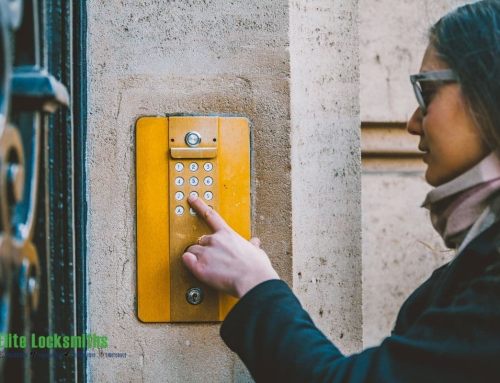Children grow in the blink of an eye. One moment they are taking their first steps, and the next moment they are going off to college. However, there comes a point when they are old enough for more responsibilities between all this growing up. Since they gradually become more mature, you can allow yourself some freedom from constantly looking after them.
These responsibilities include giving them access to a house key. Teaching them to keep track of this key and keep it safe is part of their learning responsibilities. It helps them understand how imperative the security of their house is.
Keeping that in mind, we have come up with a list of ways you can motivate your child to own key responsibilities.
1. Sit Them Down And Talk About Home Security
Before you go ahead and hand over such a crucial key to your child, you need to make them realize how important it is to keep the key safe. Appoint some rules that you want to follow. Then, walk them through what routine they should practice daily.
You should also use this opportunity to understand that this isn’t just about doors. The children need to keep windows closed and turn unnecessary lights and running taps off.
It can be overwhelming for someone to grasp so many concepts instantly. Therefore, be lenient with them initially. Whenever they make mistakes, walk them through what they did wrong politely. You can even write all this stuff out and put it up on the fridge. This way, they can look up whenever they forget anything without asking you.
2. Attaching The Key, They Get To A Backpack/Bag
Initially, it can be difficult for children to be responsible for their keys. You can attach the keys you hand over to their bags in this case. This works well with children who walk to and from school. The key stays with them all the time.
Plus, you can make it easier for them to use the keys by attaching them to the bag with a retractable cord.
3. Using A Lanyard
Attaching the house key(s) to a long lanyard works perfectly. The lanyard can then be either placed in their bags or hung around their necks.
Lanyards are much more effective if a heavy item is attached to them. It makes the key much more distinguishable and recognizable if it falls somewhere.
If your child owns only one small key, lanyards are the way to go. The key can be kept safe and is easier to carry with this accessory. After all, carrying a little key around can become tedious as it has a lot more chances of getting lost.
4. Giving Your Child A Customized Key
A perfect way to ensure the key you hand over to your child does not get mixed up with others is to give them a customized one. A unique pattern or design will do the job.
Having their initials printed on their key is another fun way to help them distinguish their key from the ones other kids own. Plus, another advantage of this step is that if your Child ever loses their key, they will be able to describe their key much more accurately.
5. Warn Them Of the Consequences
A wise thing to do before you hand over a key to the house to your child is to warn them of what can happen if they lose the key. Some parents tend to cut their children’s allowance if they let this happen, while others ban tv or go out. Summing it up, they take away things their children enjoy.
These methods, although sounding harsh, can be quite effective. The fear of losing fun privileges makes a child much more cautious about their key. They are much warier of its whereabouts. After all, that key not only opens the door to their house but to their freedom too.
Bottom Line
Key Responsibility is no small thing. Every child matures at a different age. It would help if you were careful about what time you think is right to assign them such responsibilities. Depending on their age, you can use different lessons for teaching. However, the ultimate outcome is the same—a responsible teenager.
This ensures healthy habits and makes children punctual and responsible from an early age. These key character traits play an important role in character development.











